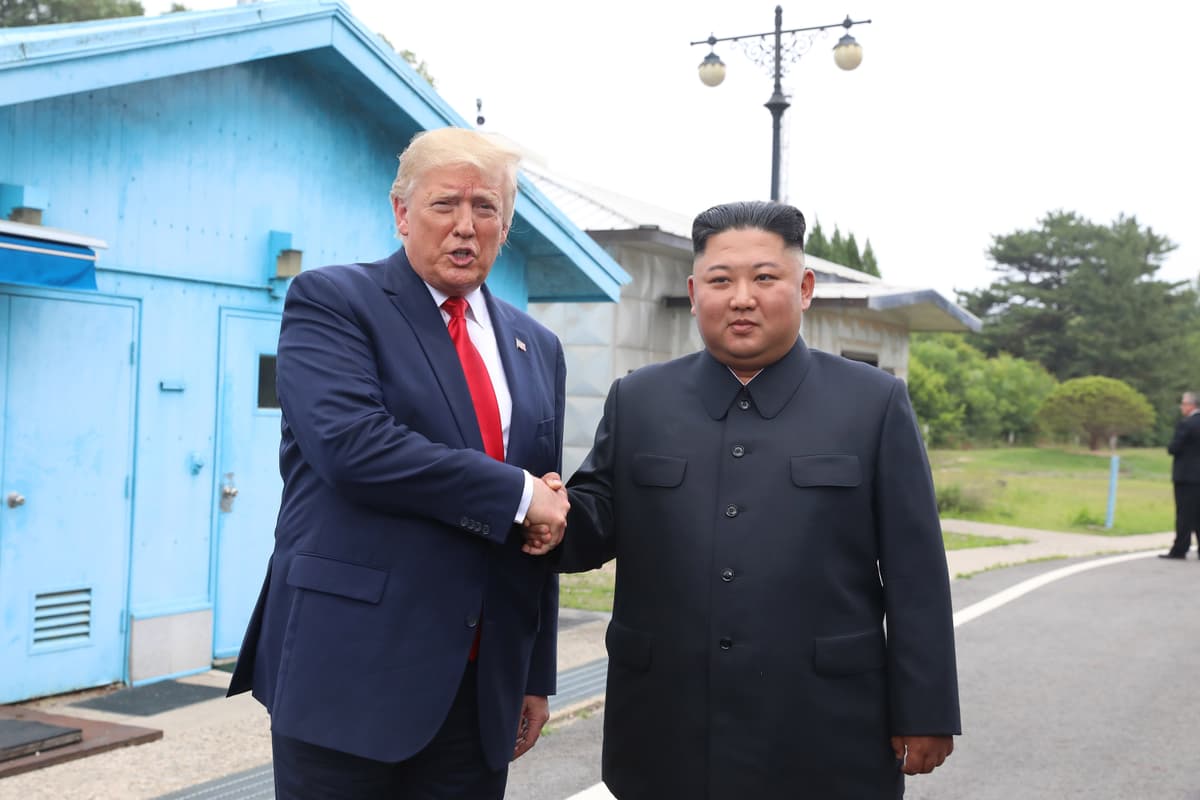Kim Jong-un Downplays Possibility of a Renewed Bromance with President Trump During a Second Term
The overriding question is whether Trump, who has professed to have exchanged ‘love notes’ with Mr. Kim, will angle for a fourth summit.

Don’t count on another summit between President Trump and North Korea’s leader, Kim Jong-un, after Trump’s inauguration to his second term in the White House in January.
Mr. Kim is painting about as grim a picture as possible of the prospects for renewing talks with Washington while Russia’s President Putin is bequeathing him the latest Russian anti-aircraft missiles and technology for defense against his foes.
Without mentioning his three summits with Trump in 2018 and 2019, Mr. Kim in a speech in Pyongyang claimed, “We already did everything possible in the bilateral negotiations with the United States, and what we were eventually convinced of was not the superpower’s will to co-exist with us but its domineering stand and unchangeably aggressive and hostile policy towards the DPRK” – the Democratic People’s Republic of Korea.
Mr. Kim did not mention Trump by name. Nor did he say where or when the North had talks with Americans. And he failed to give his audience at a military hardware exhibition in Pyongyang a clue as to what had happened or was said to convince him the talks with Trump in Singapore in June 2018, in Hanoi in February 2019 and in the truce village of Panmunjom in June 2019 were a waste of time.
He left no doubt, though, of what he thought of “American politicians” who persist in saying, “as they are wont to do, that the United States has never been hostile.”
In a swipe at Trump’s professions of peaceful intent at all three summits, Mr. Kim said such “odd-sounding rhetoric has long been rejected by the world as anything but plausible.” Pyongyang’s Korean Central News Agency carried the entire text in English for foreign consumption — meaning he had Trump and his team in mind.
Mr. Kim chose the arms exhibition to speak out about negotiations with Americans in sweeping terms, bereft of names or context, obviously delighted over his burgeoning relationship with Mr. Putin. On display, in a photograph distributed by KCNA, were missiles made by North Korea with Russian technology or donated by the Russians.
The Kremlin is reportedly compensating North Korea with the latest anti-aircraft missiles and technology thanks to Mr. Kim’s gift to Russia of as many as 12,000 troops to fill the ranks of depleted Russian marine and airborne units in Ukraine.
South Korea’s national security adviser, Shin Won-sik elaborated on the exchange of troops for arms after Russia fired a new-model intermediate-range hypersonic missile at an arms factory in the Ukrainian city of Dnipro. Mr. Shin, in an interview with Seoul Broadcasting System, said “Russia is believed to have provided equipment and anti-air missiles to strengthen Pyongyang’s vulnerable air defense system.”
It was not clear if the type of missile fired at Dnipro — named Oreshnik — was among those shown at the exhibition or if Russia is shipping the Oreshnik to North Korea, but there was no doubt the North is being richly rewarded for its battlefield support.
Asked what the Russians would give in return for the dispatch of thousands of North Korean troops to Russia, Mr. Shin said Moscow had “declared its intention to support satellite-related technologies” following the North’s “failed military spy satellite launch on May 27.” Russia, he said, had supplied “various military technologies” — presumably for a range of weapons.
The director of Korean issues at the Center for Strategic and International Studies, Victor Cha, said “Ukraine was the biggest gift” that Mr. Kim “could have hoped for” after his humiliation in the Hanoi summit. Trump walked out after Mr. Kim refused to agree to give up his nuclear program, as the Americans have long demanded.
Now the overriding question is whether Trump, who has professed to have exchanged “love notes” with Mr. Kim, will angle for a fourth summit. Mr. Kim made clear the ascent to a summit will be steep, accusing Washington of “ expanding the nuke-sharing military alliance system to contain our Republic’s rapid rise.”

